 Petzlover
Petzlover Birman is originated from France but British Semi-Longhair is originated from United Kingdom. Both Birman and British Semi-Longhair are having almost same weight. Both Birman and British Semi-Longhair has almost same life span. Both Birman and British Semi-Longhair has same litter size. Both Birman and British Semi-Longhair requires Moderate Maintenance.
Birman is originated from France but British Semi-Longhair is originated from United Kingdom. Both Birman and British Semi-Longhair are having almost same weight. Both Birman and British Semi-Longhair has almost same life span. Both Birman and British Semi-Longhair has same litter size. Both Birman and British Semi-Longhair requires Moderate Maintenance.
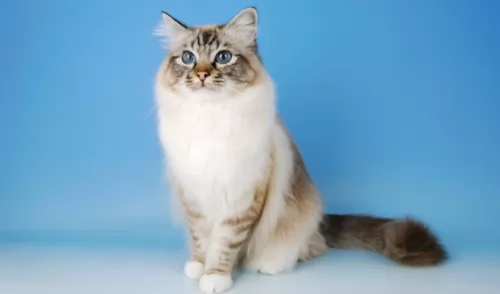 There isn’t clarity as to this exquisite cat’s origins. Many people believe they originated as the companions of temple priests in northern Burma.
There isn’t clarity as to this exquisite cat’s origins. Many people believe they originated as the companions of temple priests in northern Burma.
The cats somehow found their way to France, and it is believed that they have been in France since the 1920s.
The cats nearly disappeared during World War II, but luckily the remaining Birmans that survived were crossed with Siamese and Persians to strengthen the breed. In the early 1950s, pure Birnam litters were produced. It was in about 1959 that Birmans were brought to the United States.
The cats were also recognized in Britain in 1965 and in 1966 by the CFA. The first Birman cats were seal point but later other colors were brought in such as red, chocolate, and tabby.
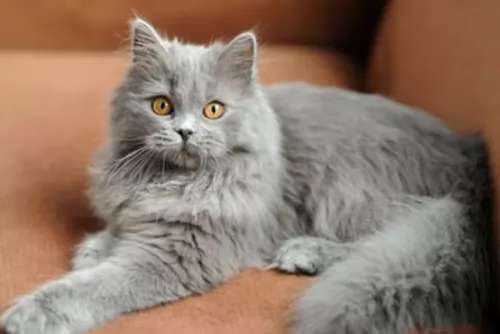 The British semi-Longhair cat is exactly like the British Shorthair except when it comes to the coat length - the hair is longer.
The British semi-Longhair cat is exactly like the British Shorthair except when it comes to the coat length - the hair is longer.
During the 20th century, a short-haired version of the modern Persian was developed and it was then proposed that a long-haired cat of the British type make it into the cat fancy.
The British Shorthair cat was bred with different Persian cat breeds which then resulted in a cat that looked like the British Shorthair cat, just with longer hair. It is recognized separately in the United States of America but considered one and the same as the short hair in the United Kingdom.
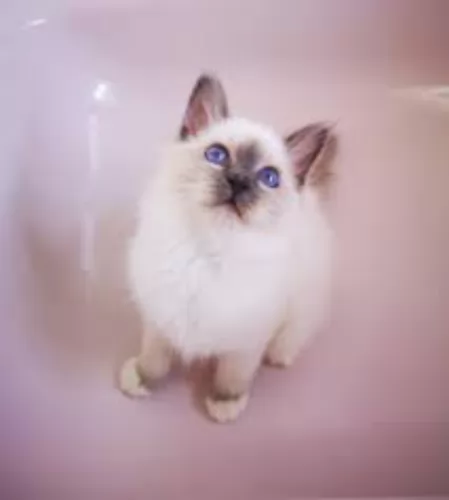 These are medium-sized cats which can become fairly large. They can weigh up to 4, 5 or 6kg. They are fairly heavily boned with a broad face and ears that are widely spaced.
These are medium-sized cats which can become fairly large. They can weigh up to 4, 5 or 6kg. They are fairly heavily boned with a broad face and ears that are widely spaced.
The round eyes are deep blue. The cat’s fur is medium-long and should be silky to the touch with no undercoat. Ther cat is a moderate shedder.
The base color is whitish to cream, but the kittens are always born white. Coat color, whether red, cream, or chocolate is always pointed and the cat always has the white paws.
The Birman isn’t as outgoing as some of the other cat breeds and its a quiet, docile intelligent cat that attaches itself to one particular family member. They can actually become jealous of their human companion and demand their attention.
These friendly cats are wonderful choices for families with children and dogs. They are calm and affectionate, and softly spoken, quietly letting you know when it’s dinner time and enjoying just being around his human family.
He is able to get along well with kids and other pets in the home. He can become quite playful too and because he is so intelligent, you can buy him some toys that require him to think.
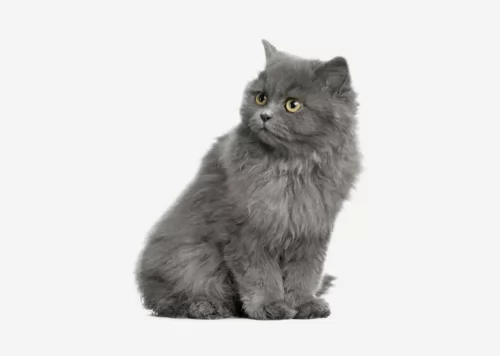 The British Semi-longhair can become quite a large cat really and is described as a medium to large cat. In fact, a full-grown British Semi-Longhair can grow to be about 7.5kg in weight.
The British Semi-longhair can become quite a large cat really and is described as a medium to large cat. In fact, a full-grown British Semi-Longhair can grow to be about 7.5kg in weight.
They’re compact and robust with short, strong legs. The longish coat can be in all colors and patterns and he sheds moderately. Color can be white, cream, chocolate, blue and colors can be solid, ticked or bi-colored.
The ears are wide-spaced and medium-sized and they eyes are almond-shaped and match the color of its coat.
The British Semi-Longhair cat is such an easy-going pussycat while being reserved, independent and undemanding. He will get on with children and other pets in the home. Perhaps he suits someone who loves the idea of having a gorgeous pet around, but who is working and doesn’t have that amount of time to devote to a cat.
The British semi-longhair is one of those cats that doesn’t mind too much if you disappear to work each day. He can amuse himself without you during that time, as long as he has some nice toys and a nice environment to chill.
It’s not the kind of cat to follow you around, making it perfect for anyone who doesn’t have the time to give the cat too much attention. It’s simply not a lap-cat.
The cat isn’t very active at all and is more than happy to sit in his favorite spot in the sun and to watch activities from there. This is a quiet, content cat, not wanting to meow unnecessarily and his round face shows off a happy disposition.
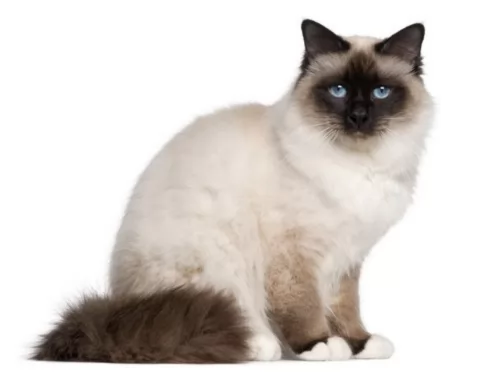 The Birman cat has to be one of the most beautiful cats there are, but the cat isn’t only a beautiful cat, it has wonderful characteristics as well.
The Birman cat has to be one of the most beautiful cats there are, but the cat isn’t only a beautiful cat, it has wonderful characteristics as well.
It is a loving, affectionate cat with his human family, loving to spend time around them. Playful and healthy, when you bring this most wonderful cat into your home, it will be as though an angel has come to stay.
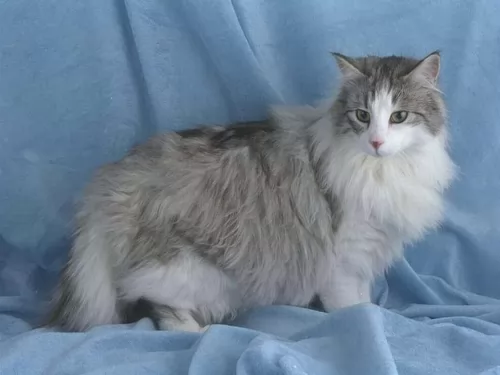 This moderately shedding cat is such a balanced cat – it is good with everyone, is quiet and unassuming. It just quietly gets on with life, being content and satisfied with its lot.
This moderately shedding cat is such a balanced cat – it is good with everyone, is quiet and unassuming. It just quietly gets on with life, being content and satisfied with its lot.
If you’re looking for a more ‘involved’, vocal, active cat, the British semi-longhair isn’t for you. If you however, want a quiet, steady presence in your home, this lovely cat is for you.
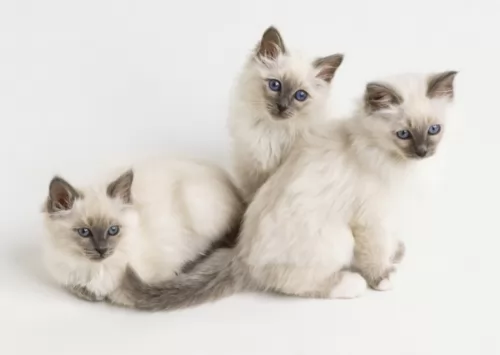 With good health your Birman can reach up to 13 years of age. With the Birman, the most serious illness is feline hypertrophic cardiomyopathy which also happens to be the most common heart disease in cats.
With good health your Birman can reach up to 13 years of age. With the Birman, the most serious illness is feline hypertrophic cardiomyopathy which also happens to be the most common heart disease in cats.
It’s a progressive disease and can result in heart failure. The cats are also at risk of developing feline infectious peritonitis.
Also, because this is a larger cat and a stocky kind of breed, it can easily put on weight and then become overweight. Strict attention will need to be given to diet as well as daily exercise.
Also, look out for Corneal dermoid - skin and hair on the surface of the cornea in one eye or in both. Luckily this is an eye problem that can be surgically corrected.
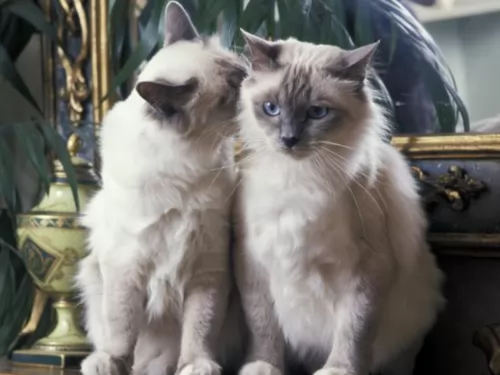 The Birman has a silky coat that sheds moderately so you want to give him a gentle brush once or twice a week to keep the coat of his soft and silky.
The Birman has a silky coat that sheds moderately so you want to give him a gentle brush once or twice a week to keep the coat of his soft and silky.
The Birman has a full topcoat, with no undercoat which means that you won’t have the coat matting or tangling.
He’ll need his nails trimmed and his teeth checked regularly. Your vet or professional groomers can do this for you and clean his teeth and check that there are no bad teeth making your pet sick.
The Birman cat has access to some great commercial cat food as there are some seriously good quality ones.
Many cat lovers choose cat foods that are AAFCO (Association of American Feed Control Officials) approved. It at least provides minimum standards for pet foods.
For your Birman you want to avoid artificial flavors and preservatives. Choose quality foods high in meat protein. As a carnivore, a cat has a huge need for meat protein. Get to know your pet food labels and choose foods with added taurine and vitamin A.
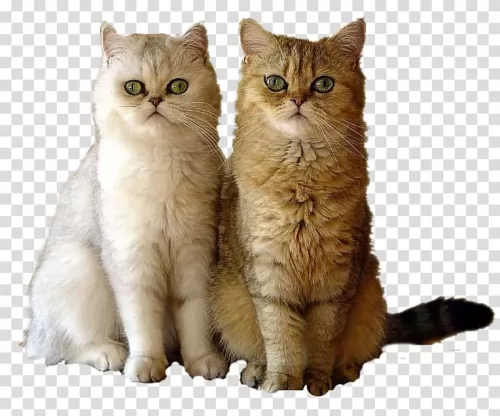 Because of the semi-longhair, the British Semi-Longhair will require more effort than short hair cats with keeping the coat free of tangling. It’s a good idea to get this cat used to a brush-session to free the coat of dust and loose hairs at least once or twice a week.
Because of the semi-longhair, the British Semi-Longhair will require more effort than short hair cats with keeping the coat free of tangling. It’s a good idea to get this cat used to a brush-session to free the coat of dust and loose hairs at least once or twice a week.
Other basic grooming requirements for your kitty kat would be to keep the claws short, to check inside the mouth for dental problems, to check inside the ears for dirt and redness and to check the eyes to make sure they’re bright and clear. If there is a discharge, wipe the eyes gently with warm water and some apple cider vinegar. Be very gentle with all your grooming processes for your cat.
The British semi-Longhair enjoys his food and if you don’t feed him in a responsible manner he can become obese. He is such a beautiful cat this that you want to ensure he gets the best premium quality food there is – food that is high in proteins.
It’s not worth feeding your beautiful semi-longhair on inferior foods as this can impair his health.
Cats are carnivores – related to lions – they’re meat-eaters. As far as their diet is concerned, they need fats and proteins and not carbs.
When you’re choosing food for your British semi-Longhair, check out the label to make sure you know precisely what your cat is taking in. When you are 100% sure that the food is the best it can be and your cat loves it, give it to him.
Don’t change foods haphazardly, as this cat likes a lifestyle devoid of sudden changes. If in any doubt, get advice from your vet on weight and calorie intake for your pet.